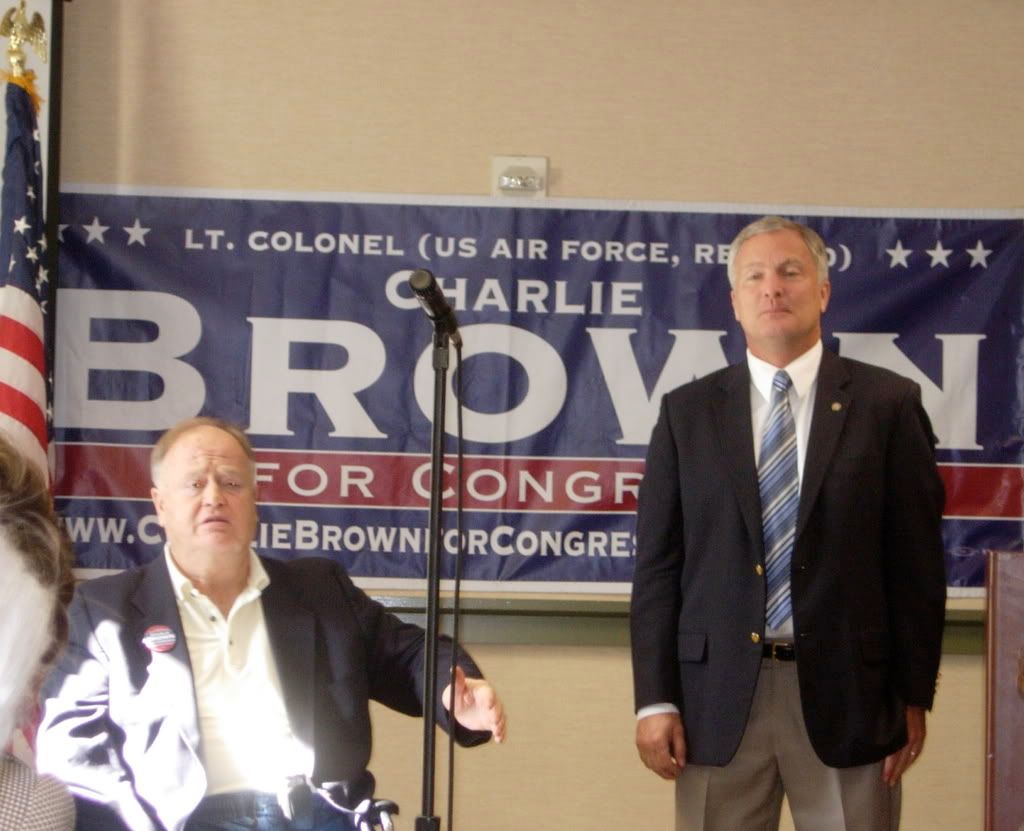That’s the impression I am getting after surveying the political and media landscape over the last few days. With the May Revise now two weeks away, the outcome of a long and contentious summer budget process is less clear than ever.
There is a growing recognition among Californians that new revenues are going to be needed to close the deficit if we are to continue having public schools. Health care, transportation, and other government services are all going to be impacted by this budget, of course, but it is education that has become the most high profile part of the budget. If Californians can be convinced to restore the relationship between taxes and services, as David Dayen framed it yesterday, it is going to happen because they will refuse to destroy our schools.
Whether Californians will be convinced – and what the details of a tax proposal will be – are at the core of what is “up for grabs” with the budget.
Today’s LA Times reports that Arnold has now embraced new taxes, sending his staff to negotiate not with Democrats but with business groups on what form this will take:
As Gov. Arnold Schwarzenegger continues to say publicly that he will hold the line against new taxes, his administration is laying the groundwork for a possible tax increase.
Administration officials are soliciting advice from business groups and other special interests on how to propose billions of dollars in tax hikes that could help close a budget shortfall the governor now says is as large as $20 billion.
Schwarzenegger’s staff is exploring a range of options, including sales taxes on lawyer and accountant services, on high-end services such as golf lessons and personal-trainer sessions, and on takeout coffee and other prepared foods that are not taxed now.
The administration’s goal, participants in the discussions say, is to gather support for new taxes from a broad spectrum of the business lobby, giving the Legislature’s Republicans political cover to break their pledges never to vote for them.
More below, including how Hillary Clinton may be undermining a progressive revenue solution…
Arnold’s proposed new revenues are very much like those that Pete Wilson used to close the budget deficit he faced in 1991-92, when newspaper and snack taxes were used to raise the needed revenues.
The problem with this approach is that it is still nibbling around the edges of our structural revenue shortfall. Estimates are that the modernized sales and professional services taxes might raise as much as $9 billion, a figure that seems a bit high. And of course, even that would leave as much as $11 billion in deficit still to close.
The core of our revenue shortfall is a regressive tax system that hits the lower classes harder than the upper classes. California’s overall tax burden is 18th among the states, but our property tax rates are at #42. The failure to modernize property tax law, to revise Prop 13 to protect fixed income homeowners while making the wealthy and commercial property owners pay their fair share, is perhaps the major reason why California faces such enormous budget deficits, whereas other states face far smaller shortfalls.
And of course, nowhere does Arnold appear to be acknowledging his colossal error of repealing the restoration of the Vehicle License Fee, which costs our state $6 billion a year. A modernized sales and professional services tax and a pre-1998 VLF would bring as much as $15 billion in revenue, making legislators’ jobs this summer far easier.
The devil is in the details of course, especially in what we have to give up to get new revenues. These would be the right wing tax solutions I discussed last week, and the LA Times article refers to them again:
Before the governor raises taxes, should he go that route, he is expected to demand legislative support for spending restraints that would force the state to create a rainy-day fund with revenue windfalls it receives during good economic times. Business leaders have long pushed for such measures, arguing that they would curb runaway spending and bring some stability to state finances.
Business leaders are also lobbying the administration to use potential tax hikes as leverage for policy changes unrelated to state spending, such as changing workplace rules to allow employers to dictate when workers can take breaks. Political analysts were not surprised to learn that the governor was considering tax hikes.
Some continue to argue whether voters will even support new taxes at all. The recent PPIC poll has given ammunition to both sides of the argument, with Bill Cavala arguing it suggests new taxes are unlikely:
Bad news for California’s budget came in from the precincts today. The latest PPIC survey indicates that (1) voters don’t want to cut education’s budget; and (2) don’t want to raise taxes to avoid those cuts. Years of budget flim-flam – led by Governor flim-flam – have convinced voters we can simply ‘reorder’ priorities and get by….
With many of the gimmicks used to ‘balance’ budgets in previous short-fall years no longer available, and with a cash-flow problem that will crest this summer, things look bleak indeed for the new leaders of the Legislature. And they deal with these problems starting with a ‘favorable’ rating by the public of 22%.
I am much less pessimistic than Cavala. He seems to be falling back on the failed assumptions that Democrats have used over the last 30 years to evade action on our structural revenue shortfall – blame the voters for not supporting tax fixes. Reading the PPIC numbers I see a very different story – about half of the state believes new taxes are a good idea. Sure, we need 66.7%, but even half is a very good place to be in considering how widespread our state’s anti-tax madness has become. Democrats should use this as a starting point, not an excuse for inaction.
Unfortunately these efforts may have been undercut by, of all people, Hillary Clinton. Her embrace of McCain’s idiotic gas tax cut – which would save drivers a total of $30 for the whole summer while blowing a $10 billion in the already-stressed federal transportation budget.
By embracing the notion that tax cuts, not investment in public services, are the solution to economic distress, Hillary Clinton has delivered a major victory for the Club for Growth and Howard Jarvis Association and delivered a serious blow to progressive Democrats who are trying to restore the link between taxes and services, between taxes and a high quality of life.
Democrats in both DC and Sacramento need to unite on this matter, and categorically reject the Republican anti-tax framing that has done so much to produce this mess. It doesn’t make our job easier here in CA to have one of the Democratic candidates running around agreeing with the right-wingers on taxes.







 On March 19, 2003, Pres. George W. Bush declared war against Iraq and the US attacked that country. Six weeks later and exactly five years ago today, Bush landed a fighter jet onboard an aircraft carrier, far from any dangers of real battle, and declared “Mission Accomplished.” He appeared almost giddy from the excitement of his most excellent adventure.
On March 19, 2003, Pres. George W. Bush declared war against Iraq and the US attacked that country. Six weeks later and exactly five years ago today, Bush landed a fighter jet onboard an aircraft carrier, far from any dangers of real battle, and declared “Mission Accomplished.” He appeared almost giddy from the excitement of his most excellent adventure. This morning, they had a more sober assessment of our foreign policy, the use of our military and our responsibilities to veterans. Here’s what Sen. Cleland had to say:
This morning, they had a more sober assessment of our foreign policy, the use of our military and our responsibilities to veterans. Here’s what Sen. Cleland had to say:
You must be logged in to post a comment.